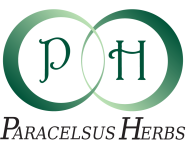Who Was Paracelsus?
Paracelsus (1493-1541) was an herbalist, alchemist, doctor, philosopher, mystic, and most importantly, a rebel, who rejected conventional wisdom in medicine for experience. His birth name was Philippus Aureolus Theophrastus Bombastus von Hohenheim. This name was bestowed by his parents to signify a kind of nobility or elevated destiny while growing up. He was born in a village in Switzerland, and is often referred to as a German-Swiss physician, being born into medieval German culture in Central Europe.
Theophrastus, as he was called, learned a good bit of his practical medicine from his father, who was not only a physician and knew about herbs, but was an alchemist, and metallurgist. Interest in these disciplines were passed on to the son, who later introduced the idea of minerals as medicines, and is considered by medical historians as the father of chemistry in medicine. Later Theophrastus adopted the name Paracelsus, to reflect his vision and agreement with the ancient Roman physician Celsus, who sought to follow Nature in the treatment of his patients

When it came time to go to medical school, Paracelsus took a wandering course through numerous European universities, only finally obtaining his doctorate from the University of Vienna (others say University of Ferrara). This achievement was probably a means to an end as Paracelsus did not respect the old medicine which had been taught for centuries in an academic, rather than practical way. He decried the ancient respected doctors such as Galen, and Avicenna, whose teachings composed most of the medical curriculum for over a thousand years. It is often said he burned the ancient’s books in public and suffered the harsh condemnation of his teachers and colleagues for that act.
According to Britannica.com, this quote is attributed to Paracelsus: “The universities do not teach all things,” he wrote, “so a doctor must seek out old wives, gipsies, sorcerers, wandering tribes, old robbers, and such outlaws and take lessons from them. A doctor must be a traveller.…Knowledge is experience.”
So he wandered as a physician as he had as a student. He visited exotic places like Egypt, Turkey, Arabia, and the Holy Land. He became an army doctor. He practiced medicine wherever he landed. Most of all, he continued to seek knowledge of healing, especially through the lens of the healing power of Nature. Paracelsus realized that all matter, whether called organic or inorganic, contained a vital force, or energy, that could be recruited or guided to maximize the healing power of the remedies he used. This vital force is also present within the person being treated, and referred to as innate wisdom or innate intelligence.
One of his ongoing concerns while traveling, learning, and practicing medicine was the practice of alchemy. Alchemy in the Middle Ages in Europe was not a fanciful, fantastic pursuit, but involved chemical knowledge and experimentation, and thus was the precursor of what we now know as scientific chemistry. As it turned out, Paracelsus, reinvented alchemy by seeking to make better medicines through a process he named Spagyrics or Spagyria. This involved breaking down a substance down to its basic elements, adding them back to together, and ending up with a new substance greater than the sum of its parts. The motto of this practice was Solve et Coagula or “dissolve and coagulate,” sometimes simply expressed as separate and combine.
Paracelsus believed every substance whether animal, vegetable, or mineral had a body, mind, and spirit. This was a philosophical concept that lead to direct laboratory process and technique. In herbal Spagyric philosophy the term for the body of the plant is “salt,” the spirit of the plant is the “sulphur,” and the mind is “mercury,” or the solvent, usually alcohol, which draws out and separates all the parts. They are then recombined through special processes such as reducing the left over plant to ash (calcination), distilling the alcohol solvent, filtering out impurities, heating (incubating), and aging.
While Paracelsus wrote a number of medical, philosophical, and alchemical writings, his laboratory knowledge had no direct lineage handed down to modern times and has been reinvented by scholars, chemists, and philosophers as part of an alchemical revival that started in the 1930s. Paracelsus would surely have enjoyed this, as he liked unconventional thinking, and philosophical exploration.
An image has come down to us of Paracelsus “composing” his many volumes of medical and alchemical knowledge. He would sit at a tavern table, dictating to a scribe, who hurriedly wrote down all the master had to say, while Paracelsus drank one tankard after another of strong German beer. Perhaps his spagyric remedies allowed him to do this! Whatever the case, he was a man of the people, a philosopher who had not lost the common touch.
